Politics
/
December 15, 2023
The strange global influence of anarcho-capitalism.
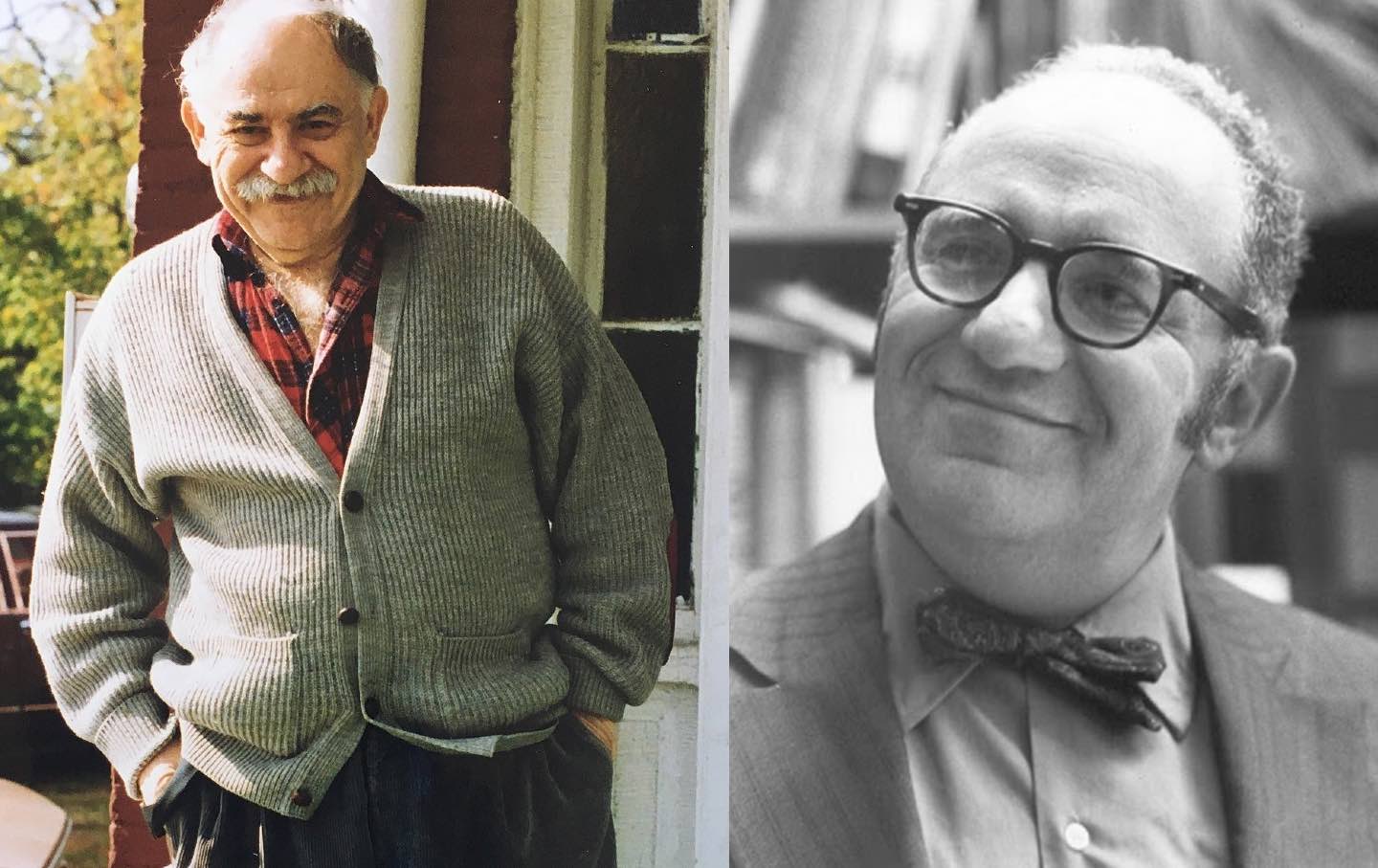
Murray Bookchin and Murray Rothbard are both examples of how formerly obscure thinkers can rise to posthumous fame—at home, and in faraway places. They follow a trajectory similar to that of Jeremy Bentham as described by William Hazlitt in an essay in The Spirit of the Age (1815), written while the utilitarian philosopher was still alive. According to Hazlitt, Bentham’s “reputation lies at the circumference; and the lights of his understanding are reflected, with increasing lustre, on the other side of the globe. His name is little known in England, better in Europe, best of all in the plains of Chile and the mines of Mexico. He has offered constitutions for the New World, and legislated for future times.”
Bookchin was born in 1921 and died in 2006, Rothbard’s dates are from 1926 to 1995. Both were relatively obscure figures in their lifetime, known to readers of small journals and followers of fringe political factions, but hardly makers of front-page news. Writing in The Baffler in 2017, John Ganz described Rothbard as “the forgotten man.” Yet it’s increasingly evident that their political philosophies, often disdained by the mainstream arbiters of the left and right, have had a lasting impact. Like Bentham, they legislated for future times.
Bookchin’s vision of decentralized political radicalism has left its mark on movements like Occupy Wall Street and antifa. Even more consequentially, Bookchin’s brand of libertarian socialism has become one of the animating ideologies of Kurdish nationalism, informing the government of Rojava (a region of Syria under Kurdish control) and the Kurdish political movement in southeastern Turkey.
Rothbard, a firebrand who created an extreme version of libertarianism called anarcho-capitalism, also has a restless and far-traveling ghost. As Ganz convincingly shows, Rothbard was a crucial precursor to Trumpism. In the 1980s, Rothbard married the traditional anarcho-capitalist desire to dismantle the state with the racial resentment of paleoconservatives such as Pat Buchanan, creating a synthesis that had robustness and reach. The newly elected president of Argentina, Javier Milei, styles himself an anarcho-capitalist. Milei owns five cloned dogs whom he calls his “four-legged children” and often turns to for political advice. Each dog is named after a libertarian economist. One is called Murray, after Rothbard.
Despite sharing the same first name, both styling themselves as anarchists and sharing other similarities, in life Bookchin and Rothbard didn’t get along. As Brian Doherty writes in his 2007 book, Radicals for Capitalism: A Freewheeling History of the Modern American Libertarian Movement, “Anarcho-left theorist Murray Bookchin became an occasional visitor to the famous Rothbard living room—until Rothbard one day angrily kicked him out of the house.” Later, Bookchin would resent the fact that Rothbard falsely accused him of being a Marxist.
The spat between the two Murrays was not just the typical sectarian squabble found in radical politics but based on a fundamental disagreement. Bookchin’s libertarianism was authentic: He really wanted not just a decentralized state but also the breakdown of the hierarchies of class, race, and gender that are foundational to oppression. By contrast, Rothbard’s anarchism was a pretend ideology with anti-statist rhetoric hiding the desire to create a much more rigidly hierarchical society.
Current Issue
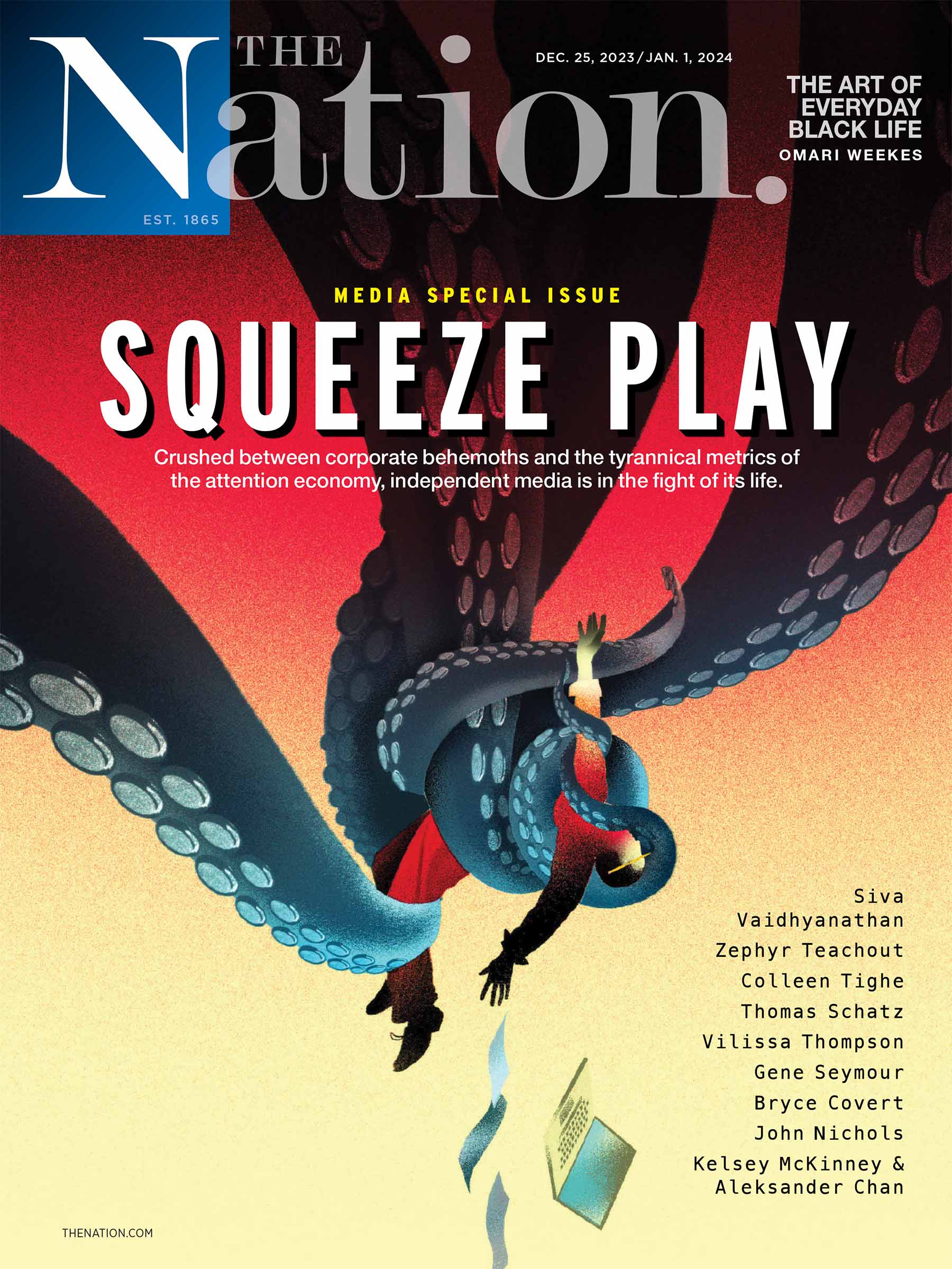
Rothbard was a curious mixture of extremist goals pursued by opportunistic means. At various points in his life, he was aligned with figures and movements as diverse as William F. Buckley, Ayn Rand, William Appleman Williams, the Peace and Freedom Party’s Maoist faction, Charles Koch, and Pat Buchanan.
Rothbard’s wild peregrinations across the political spectrum make sense if we understand that he saw each tactical alliance as a necessary step in destroying the welfare state. Although he grew up in a largely left-wing family, Rothbard, influenced by his father, was a rabid opponent of the New Deal. His early heroes were Robert Taft and Joseph McCarthy. For a period, he was an ally of Ayn Rand and part of William F. Buckley’s National Review circle, but he came to distrust both. He was wisely wary of the fanatical nature of Rand’s movement (which he described as a “totalitarian religious cult”) and saw the Cold War militancy of National Review as a bulwark of statism.
Rothbard’s conviction that the Cold War was locking the United States into a permanent warfare-welfare state led him to his most creatively interesting period, the 1960s, when he formed alliances with New Left thinkers like William Appleman Williams as well as the Peace and Freedom Party. This was the period where Murray Bookchin was briefly allowed into Rothbard’s living room. Working with these allies, Rothbard developed a critique of technocratic and corporate liberalism that remains valuable. Corporate liberalism was something that both the New Left and libertarians could unite in seeing as an enemy.
In 1972, Rothbard coedited with Ronald Radosh (then also part of the New Left, although later a neoconservative) a book titled A New History of Leviathan. As historian Gary Gerstle notes in The Rise and Fall of the Neoliberal Order (2022), the Rothbard and Radosh volume was a “foundational text” that would “significantly influence the writing of American political history across the next quarter century.”
But by the time A New History of Leviathan appeared, Rothbard’s alliance with the New Left was already fraying. In 1969, moving from the simple hardline libertarianism he inherited from the economist Ludwig von Mises, Rothbard started describing himself as an anarcho-capitalist (borrowing from his one-time ally Karl Hess, a former speechwriter for Barry Goldwater who became a New Left radical).
As historian Quinn Slobodian writes in his recent study Crack-Up Capitalism, Rothbard “had no tolerance for government of any kind…. In his ideal world, government would be eliminated altogether. Security, utilities, infrastructure, health care: all would be bought through the market with no safety net for those unable to pay.”
Working through anarcho-capitalist thinking in his book Ethics of Liberty (1982), Rothbard argued that parents have the right to starve their children to death. The flavor of Rothbard’s reasoning is caught in this passage:
Applying our theory to parents and children, this means that a parent does not have the right to aggress against his children, but also that the parent should not have a legal obligation to feed, clothe, or educate his children, since such obligations would entail positive acts coerced upon the parent and depriving the parent of his rights. The parent therefore may not murder or mutilate his child, and the law properly outlaws a parent from doing so. But the parent should have the legal right not to feed the child, i.e., to allow it to die.
Popular
“swipe left below to view more authors”Swipe →
In the same spirit, Javier Melei has proposed legalizing the sale of children.
This conception of parental rights is characteristic of Rothbard’s defense of extreme hierarchy, which can also be seen in his advocacy of racial separatism. In the 1960s, as Slobodian notes, Rothbard “believed that Black secession from the United States was achievable; indeed, communities should respect the principle of racial separation. He became frustrated by the cross-racial collaboration of white and Black radicals. Blacks should work with Blacks, he thought, just as it was ‘the responsibility of whites to build the white movement.’”
Rothbard’s rejection of anti-racism and feminism was the pivot point in his intellectual journey and foreclosed any alliances he might have made with Bookchin or others on the left. Slobodian observes that “the deviation of the New Left from his preferred script of racial exit turned Rothbard violently against it by the early 1970s. Their dogged egalitarianism was an affront to his belief in the biologically hardwired hierarchy of talent and ability in both individuals and groups.”
Turning away from the New Left, Rothbard helped found the Charles Koch Foundation in 1974, rechristened the Cato Institute in 1974. Although Rothbard briefly found genuine influence as the éminence grise of the Koch brothers’ network, he bristled at what he saw as their compromised vision of liberty. They merely wanted to cut back the state, whereas he wanted to destroy the state altogether.
In 1982 Rothbard helped launch a new think tank, the Ludwig von Mises Institute for Austrian Economics, housed in Auburn, Ala. His ally in this enterprise was a neo-Confederate libertarian named Llewellyn Rockwell Jr., described by Slobodian as “both a radical libertarian and an advocate of racial separatism ever since his first position at the conservative publisher Arlington House (named, with little subtlety, after the last residence of Confederate general Robert E. Lee).” In a 1970 letter, Rockwell said he supported “de facto segregation for the majority of both races.”
This partnership with Rockwell inaugurated Rothbard’s final and most lastingly influential phase. He now called himself a paleo-libertarian (to distinguish himself from New Left–influenced libertarians who were socially liberal). Under that rubric, Rothbard worked to forge an alliance with figures like Pat Buchanan and Samuel T. Francis, who were rebranding themselves as paleoconservatives (to distinguish their politics from the then-dominant neoconservatism of Norman Podhoretz and Irving Kristol). According to Rockwell in a 1990 essay for “The Rockwell-Rothbard Report” (a newsletter put out by the team), the task was to purge the “hippies, druggies, and militantly anti-Christian atheists” from the libertarian movement. In a 1992 article for “The Rockwell-Rothbard Report,” Rothbard upheld David Duke as a model for the politics of the new right-wing populism that he felt was necessary.
In that article, Rothbard showed how far he had abandoned any pretence of anarchist anti-statism. On the issue of crime he wrote, “Take Back the Streets: Crush Criminals. And by this I mean, of course, not ‘white collar criminals’ or ‘inside traders’ but violent street criminals—robbers, muggers, rapists, murderers. Cops must be unleashed, and allowed to administer instant punishment, subject of course to liability when they are in error.” He added, “Take Back the Streets: Get Rid of the Bums. Again: unleash the cops to clear the streets of bums and vagrants. Where will they go? Who cares?”
On Friday, David Adler of the Progressive International reported on X: “President Javier Milei announces a total crackdown on Argentine civil society, calling on armed forces to break strikes, arrest protestors, ‘protect’ children from families that bring them to demos, and form a new national registry of all agitating organisations.” The naïve will say that Milei is betraying the spirit of libertarianism and anarchism. But in truth, the brutal use of state power to repress free speech and activism is central to the anarcho-capitalist agenda.
This vision of society is not anarchist. Nor is it even libertarian. It is authoritarian. No wonder Murray Rothbard couldn’t get along with Murray Bookchin. Nor is it surprising—as the political right grows more authoritarian around the world—that Rothbard is the Murray of the moment.
-
Submit a correction
-
Reprints & permissions
The story you just read is made possible by a dedicated community of Nation reader-supporters who give to support our progressive, independent journalism. A generous supporter has agreed to match all donations up to $100,000 from now until the end of the year. Make a contribution before 12/31 and double your impact. Donate today!
More from
Jeet Heer 
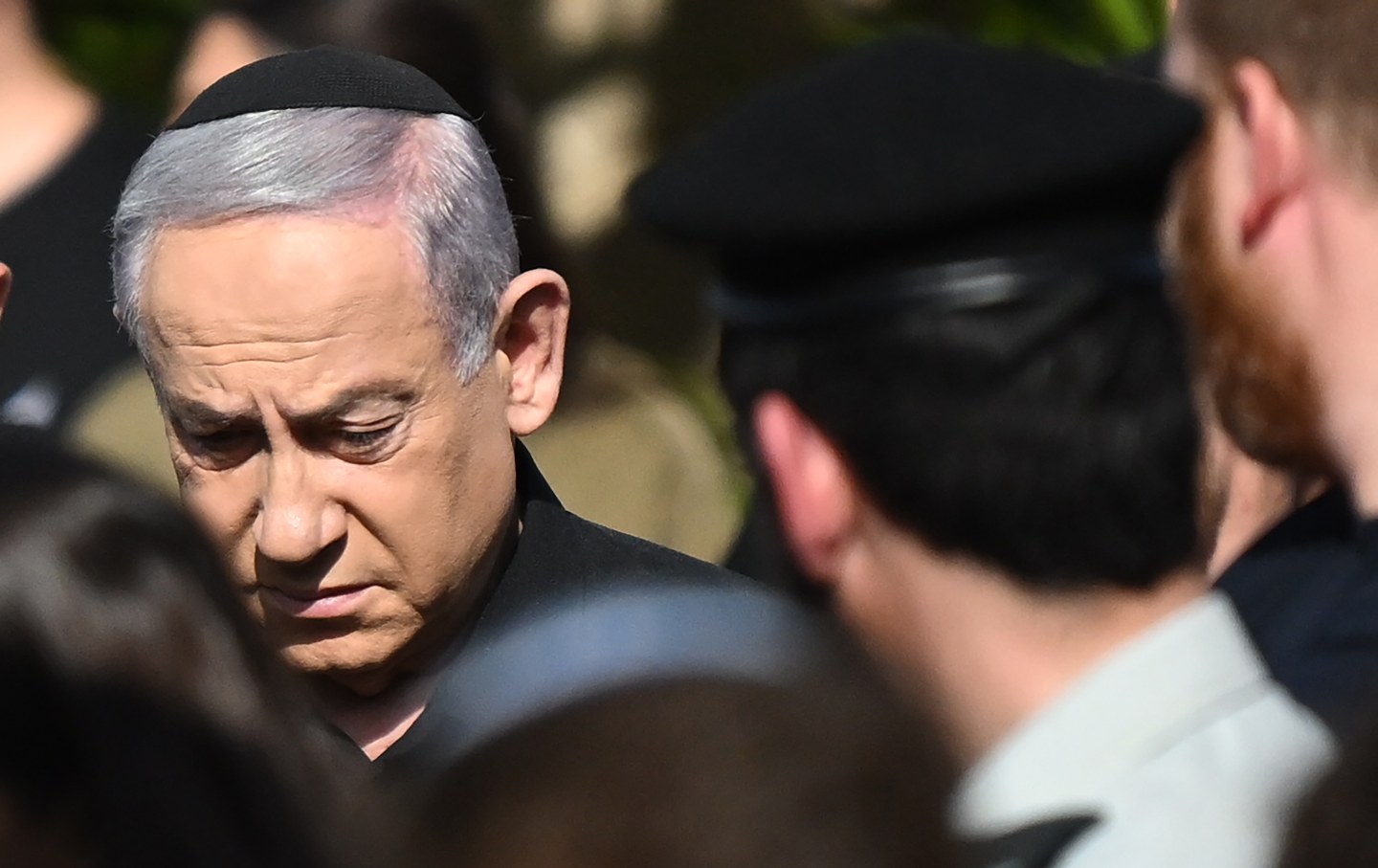
The Israeli prime minister followed a decades-old divide-and-rule strategy that fuels endless war.
Jeet Heer
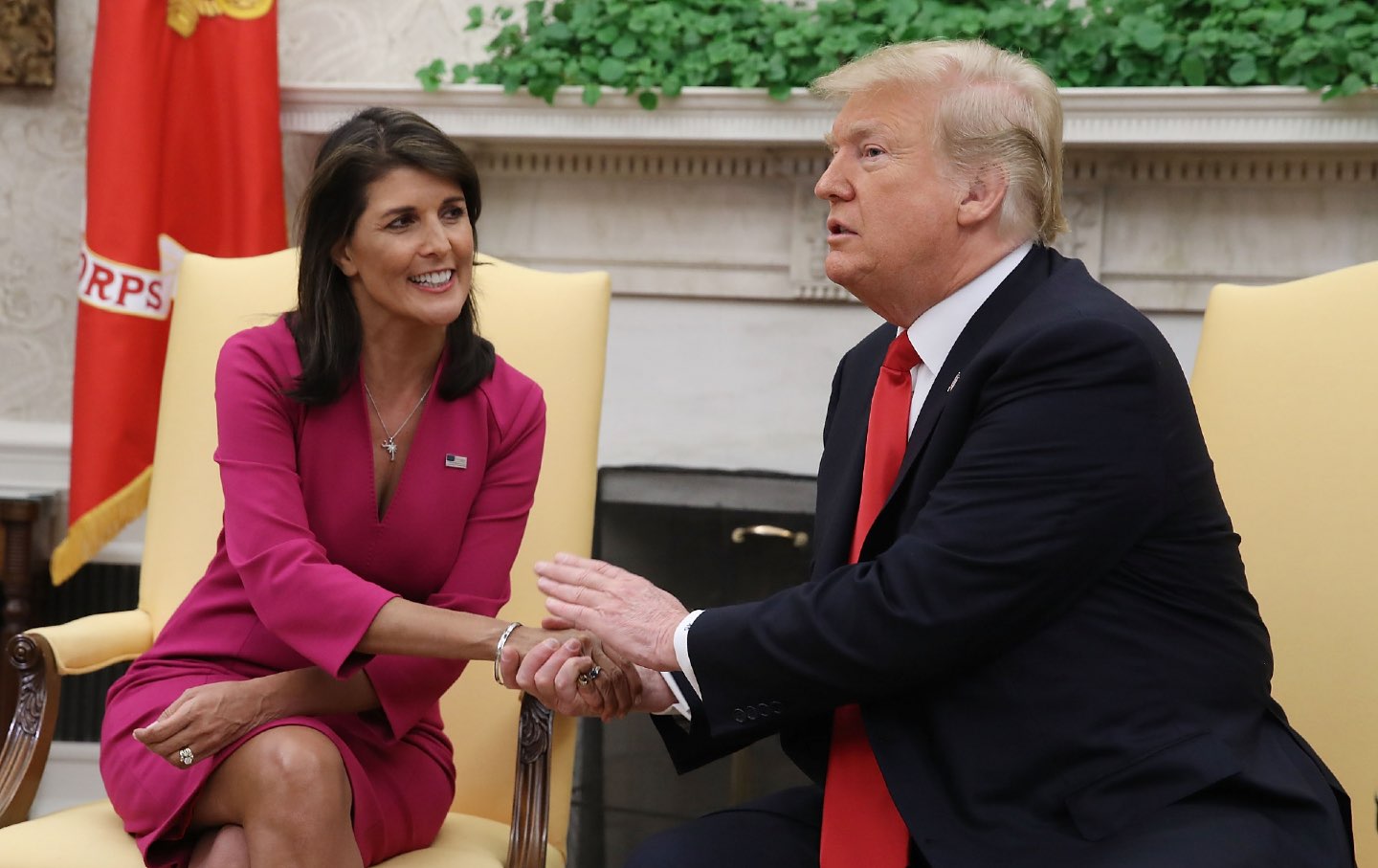
The favorite of plutocrats and the mainstream media is running a deeply deceptive campaign.
Jeet Heer
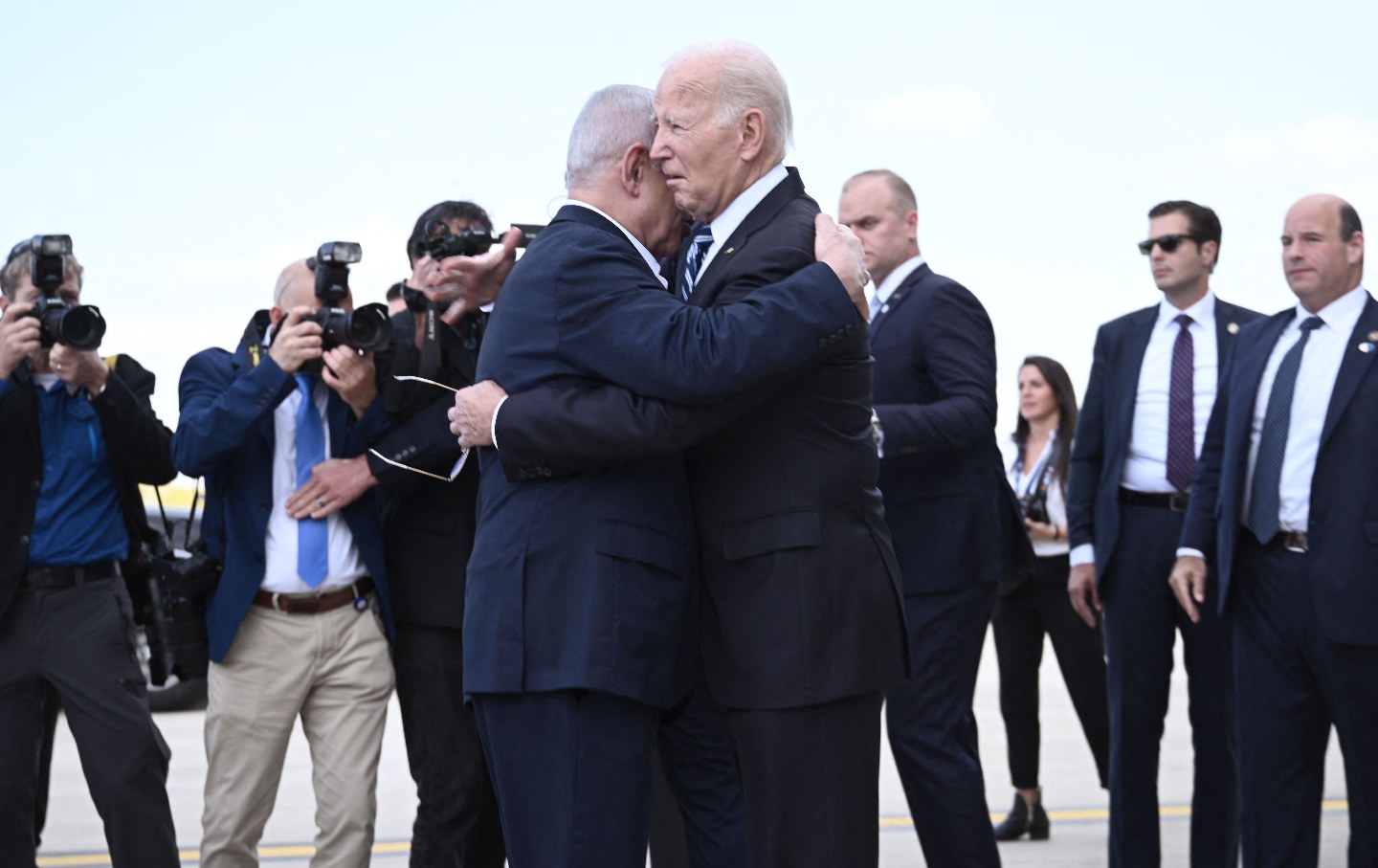
The renewed fighting between Israel and Hamas shows the incoherence of mixing humanitarian words and bigger bombs.
Comment
/
Jeet Heer
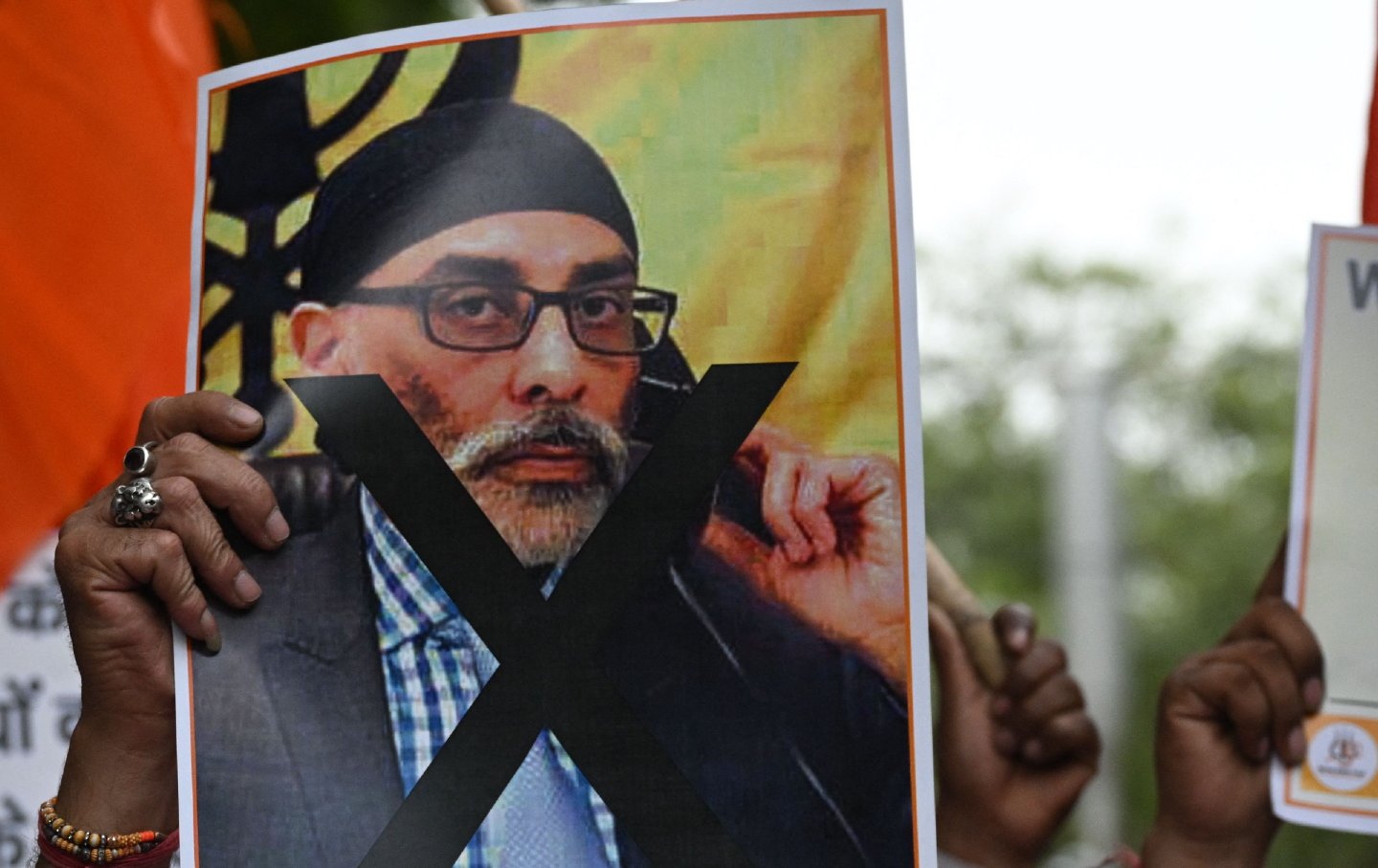
Trying to murder American citizens on American soil is no big deal—so long as the foreign policy elite likes you.
Jeet Heer

The extended hostage exchange offers the opportunity to move from war to cease-fire to negotiations.
Jeet Heer
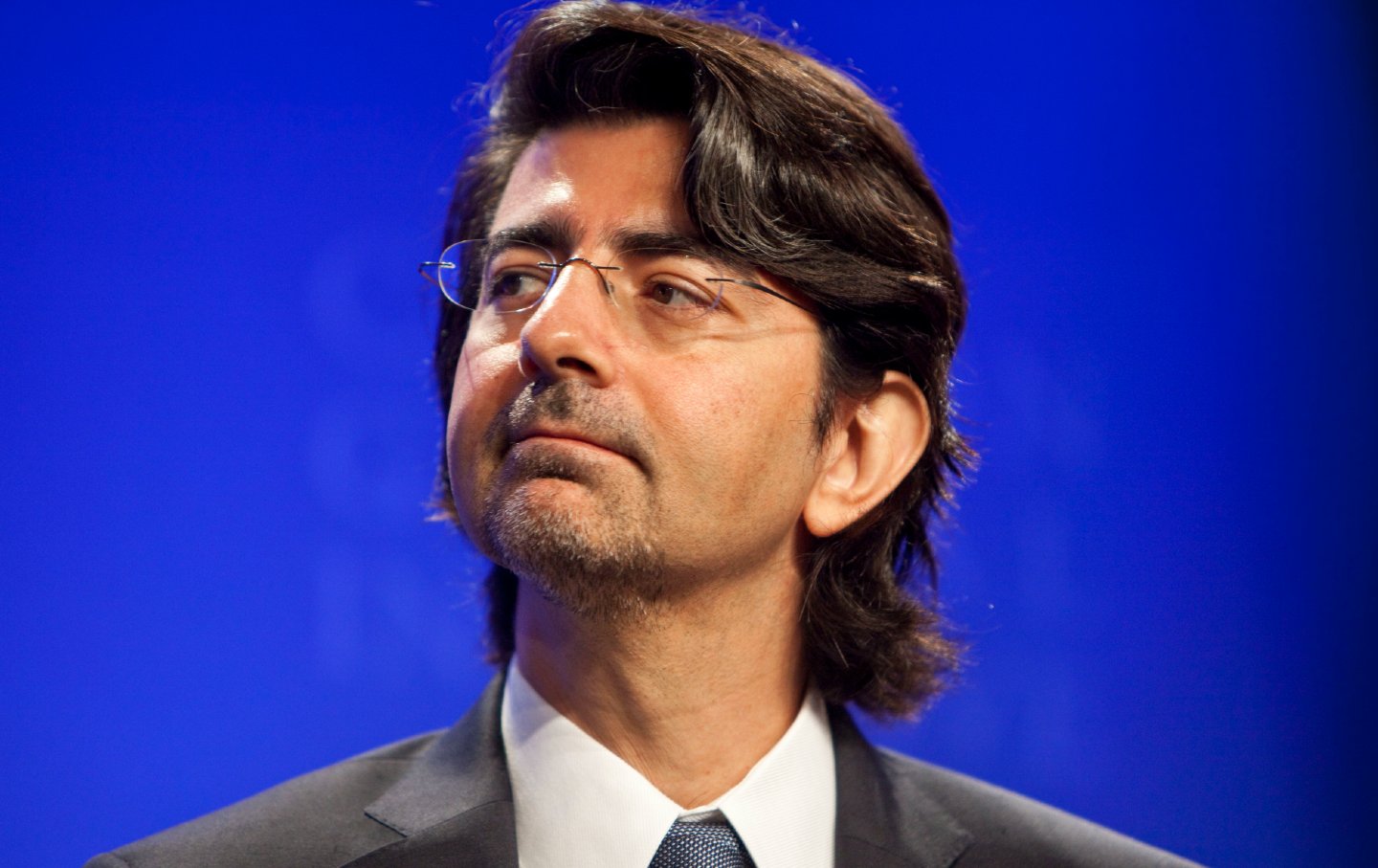
Many purportedly progressive plutocrats turn reactionary on Israel and labor.
Jeet Heer

Felecia Phillips Ollie DD (h.c.) is the inspiring leader and founder of The Equality Network LLC (TEN). With a background in coaching, travel, and a career in news, Felecia brings a unique perspective to promoting diversity and inclusion. Holding a Bachelor’s Degree in English/Communications, she is passionate about creating a more inclusive future. From graduating from Mississippi Valley State University to leading initiatives like the Washington State Department of Ecology’s Equal Employment Opportunity Program, Felecia is dedicated to making a positive impact. Join her journey on our blog as she shares insights and leads the charge for equity through The Equality Network.




